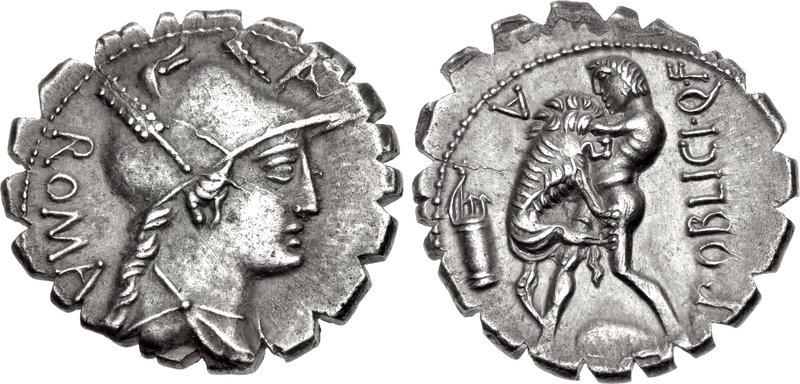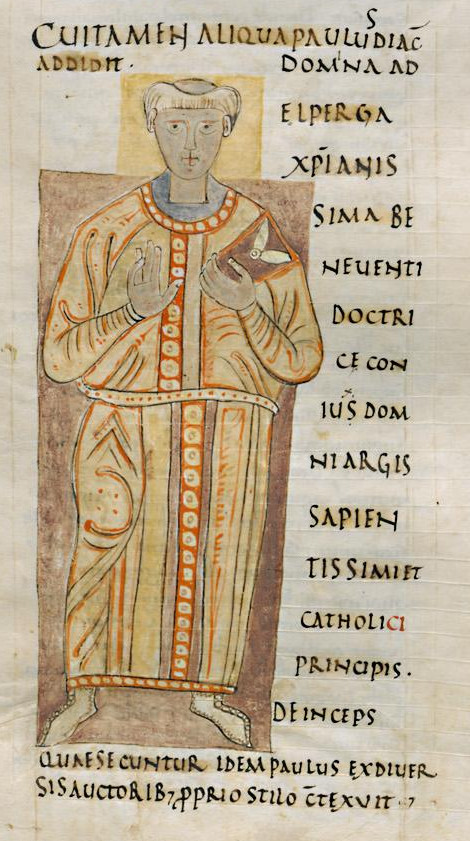|
Publius (praenomen)
Publius is a Latin ''praenomen'', or personal name. It was used by both patrician and plebeian families, and was very common at all periods of Roman history. It gave rise to the patronymic '' gens Publilia'', and perhaps also '' gens Publicia''. The feminine form is ''Publia''. The name was regularly abbreviated P.''Dictionary of Greek & Roman Biography & Mythology''''Realencyclopädie der Classischen Altertumswissenschaft''Mika Kajava, ''Roman Female Praenomina: Studies in the Nomenclature of Roman Women'' (1994) Throughout Roman history, Publius was one of the most frequently-used praenomina, typically occupying fourth or fifth place, behind ''Lucius'', ''Gaius'', and ''Marcus'', and occurring with about the same frequency as ''Quintus''. The feminine form, ''Publia'', was also quite common, and is found in numerous inscriptions as late as the 3rd century, and perhaps beyond. Origin and meaning of the name Publius is thought to derive from the same root as ''populus'' and ''pub ... [...More Info...] [...Related Items...] OR: [Wikipedia] [Google] [Baidu] |
Praenomen
The ''praenomen'' (; plural: ''praenomina'') was a personal name chosen by the parents of a Roman child. It was first bestowed on the ''dies lustricus'' (day of lustration), the eighth day after the birth of a girl, or the ninth day after the birth of a boy. The praenomen would then be formally conferred a second time when girls married, or when boys assumed the '' toga virilis'' upon reaching manhood. Although it was the oldest of the ''tria nomina'' commonly used in Roman naming conventions, by the late republic, most praenomina were so common that most people were called by their praenomina only by family or close friends. For this reason, although they continued to be used, praenomina gradually disappeared from public records during imperial times. Although both men and women received praenomina, women's praenomina were frequently ignored, and they were gradually abandoned by many Roman families, though they continued to be used in some families and in the countryside. Backgr ... [...More Info...] [...Related Items...] OR: [Wikipedia] [Google] [Baidu] |
Given Name
A given name (also known as a forename or first name) is the part of a personal name quoted in that identifies a person, potentially with a middle name as well, and differentiates that person from the other members of a group (typically a family or clan) who have a common surname. The term ''given name'' refers to a name usually bestowed at or close to the time of birth, usually by the parents of the newborn. A ''Christian name'' is the first name which is given at baptism, in Christian custom. In informal situations, given names are often used in a familiar and friendly manner. In more formal situations, a person's surname is more commonly used. The idioms 'on a first-name basis' and 'being on first-name terms' refer to the familiarity inherent in addressing someone by their given name. By contrast, a surname (also known as a family name, last name, or ''gentile name, gentile'' name) is normally inherited and shared with other members of one's immediate family. Regnal names ... [...More Info...] [...Related Items...] OR: [Wikipedia] [Google] [Baidu] |
Publilia Gens
The gens Publilia (), sometimes written Poblilia, was a plebeian family at ancient Rome. Members of this gens are first mentioned in the early decades of the Republic. The ''lex Publilia'' passed by Volero Publilius, tribune of the plebs in 471 BC, was an important milestone in the struggle between the patrician and plebeian orders. Although the Publilii appear throughout the history of the Republic, the family faded into obscurity around the time of the Samnite Wars, and never again achieved positions of prominence in the Roman state.''Dictionary of Greek and Roman Biography and Mythology'', vol. III, p. 603 ("Publilia Gens"). Origin The nomen ''Publilius'' is a patronymic surname based on the Latin praenomen '' Publius'', with which it is frequently confused. Praenomina The praenomina used by the Publilii included '' Volero'', ''Lucius'', ''Quintus'', ''Gaius'', and ''Titus''. All were very common throughout Roman history, except for ''Volero''; the Publilii were the only ... [...More Info...] [...Related Items...] OR: [Wikipedia] [Google] [Baidu] |
Publicia Gens
The gens Publicia (), occasionally found as Poblicia or Poplicia, was a plebeian family at ancient Rome. Members of this gens are first mentioned in history during the period following the First Punic War, and the only one to achieve the consulship was Marcus Publicius Malleolus in 232 BC.''Dictionary of Greek and Roman Biography and Mythology'', vol. III, p. 600 ("Publicia Gens"). Origin The nomen ''Publicius'' belongs to a class of gentilicia derived from words ending in ''-icus''. The root, ''publicus'', is a Latin adjective meaning "of the people". Although the Publicii are not mentioned at Rome prior to the third century BC, they claimed descent from a legendary figure from the time of the kings. Ancus Publicius of Cora was said to have been one of the generals of the Latin League, together with Spurius Vecilius of Lavinium, in a war against the Romans during the reign of Tullus Hostilius, the third King of Rome, who claimed dominion over the cities of Latium following t ... [...More Info...] [...Related Items...] OR: [Wikipedia] [Google] [Baidu] |
Paul The Deacon
Paul the Deacon ( 720s 13 April in 796, 797, 798, or 799 AD), also known as ''Paulus Diaconus'', ''Warnefridus'', ''Barnefridus'', or ''Winfridus'', and sometimes suffixed ''Cassinensis'' (''i.e.'' "of Monte Cassino"), was a Benedictine monk, scribe, and historian of the Lombards. Life An ancestor of Paulus's named Leupichis emigrated to Italy in 568 in the train of Alboin, King of the Lombards. There, he was granted lands at or near ''Forum Julii'' (Cividale del Friuli). During an invasion by the Avars, Leupichis's five sons were carried away to Pannonia, but one of them, his namesake, returned to Italy and restored the ruined fortunes of his house. The grandson of the younger Leupichis was Warnefrid, who by his wife Theodelinda became the father of Paul. Paulus was his monastic name; he was born Winfrid, son of Warnefrid, between 720 and 735 in the Duchy of Friuli. Thanks to the possible noble status of his family, Paul received an exceptionally good education, probably at t ... [...More Info...] [...Related Items...] OR: [Wikipedia] [Google] [Baidu] |
Jacques Heurgon
Jacques Heurgon (25 January 1903 – 27 October 1995) was a French university, normalian, Etruscan scholar and Latinist, professor of Latin language and literature at the Sorbonne. Married to Anne Heurgon-Desjardins, founder in 1952, of the Centre culturel international de Cerisy-la-Salle, he was the father of , politician and historian, Catherine Peyrou and Edith Heurgon who continued the "Colloques of Cerisy". A member of the École française de Rome (1928–1930), he was elected a member of the Académie des Inscriptions et Belles-Lettres in 1969. Biography Coming from a family of Parisian jewelers, he studied at the lycée Condorcet, where he met poet Jean Tardieu, with whom he would correspond for twenty years. Entered in the École normale supérieure in 1923, he was received at the first rank of the agrégation de lettres. In 1926, he married the daughter of his former professor in khâgne, Paul Desjardins, who would organize at the abbaye de Pontigny the "", liter ... [...More Info...] [...Related Items...] OR: [Wikipedia] [Google] [Baidu] |


